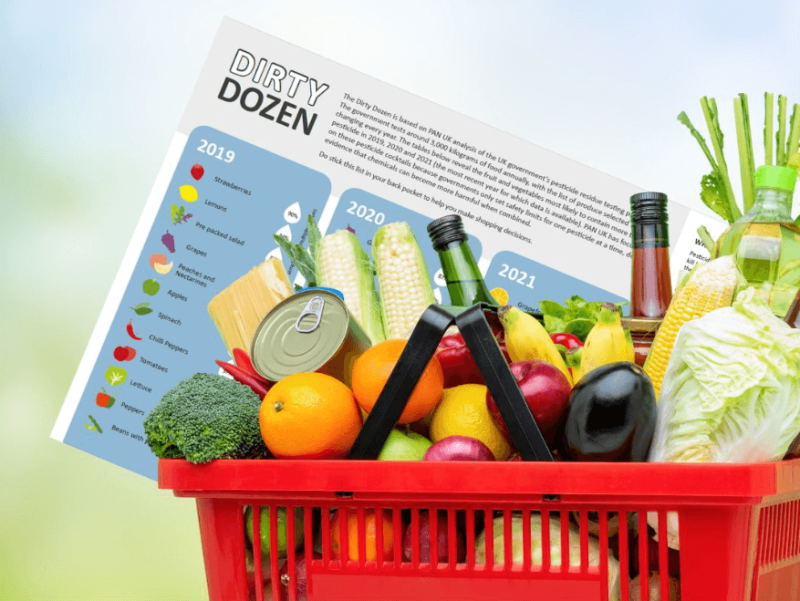Every year the Environmental Working Group (EWG) releases its list of the Dirty Dozen, a group of 12 fruits and vegetables it claims to be contaminated with pesticides. It recommends that if you would like to eat produce off the Dirty Dozen list, you should choose organic. This year a few produce items have shifted rankings, but the 12 items under fire remain the same as that of 2023, with strawberries at the top of the list and blueberries and green beans rounding out spots 11 and 12.
Although this consumer advocacy group believes it’s helping consumers make better choices, the reality is it isn’t. With 90 percent of Americans not meeting their recommended amounts of vegetables and 85 percent of Americans not meeting fruit recommendations, the benefits of eating produce, whether it’s conventional, organic, ugly or local are plentiful.
A peer-reviewed study published in 2016 found that the “shoppers’ guides” may be negatively impacting the produce purchasing habits of lower-income shoppers. Researchers surveyed lower-income consumers to learn more about what influences their shopping habits. They found that misleading messaging, which inaccurately describes certain fruits and vegetables as having “higher” pesticide residues, results in lower-income shoppers reporting that they would be less likely to purchase any fruits and vegetables – organic or conventional. So people are missing out on the many health benefits that produce provides because of inaccurate claims.































